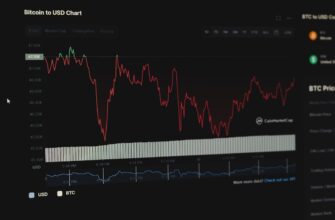- Understanding Staking Rewards and Philippine Tax Obligations
- How the BIR Classifies Staking Income
- Step-by-Step Guide to Reporting Staking Rewards
- Step 1: Document All Rewards
- Step 2: Determine Your Tax Category
- Step 3: Calculate Tax Due
- Step 4: File and Pay
- Common Reporting Mistakes to Avoid
- FAQs: Reporting Crypto Staking in the Philippines
- 1. Are staking rewards really taxable in the Philippines?
- 2. What if I stake through international platforms?
- 3. How do I value rewards in Philippine pesos?
- 4. Can I deduct staking-related expenses?
- 5. What penalties apply for non-compliance?
- Staying Compliant in 2024
Understanding Staking Rewards and Philippine Tax Obligations
Staking rewards—earned from locking cryptocurrencies to support blockchain networks—are considered taxable income by the Bureau of Internal Revenue (BIR) in the Philippines. As crypto adoption grows, understanding how to properly report these earnings is crucial to avoid penalties. This guide breaks down the step-by-step process for compliant tax reporting, tailored to Filipino investors under current BIR regulations.
How the BIR Classifies Staking Income
The BIR treats staking rewards as taxable income, falling under these categories:
- Passive Income: For casual investors, rewards are taxed at 15-20% final withholding tax
- Business Income: If staking is part of regular trading activities, it’s subject to graduated rates (5-35%)
- Other Income: Unclassified earnings taxed at the applicable individual/corporate rate
Tax treatment depends on your investor status—whether you’re an individual hobbyist, professional trader, or registered business entity.
Step-by-Step Guide to Reporting Staking Rewards
Step 1: Document All Rewards
- Track dates, amounts, and market values (in PHP) at time of receipt
- Use exchange rates from Bangko Sentral ng Pilipinas (BSP) or reliable crypto platforms
- Maintain screenshots, transaction IDs, and wallet statements
Step 2: Determine Your Tax Category
- Individual Investors: File using BIR Form 1701 (Annual Income Tax Return)
- Registered Businesses: Use BIR Form 1702-RT for corporations
- Professional Traders: Report as self-employed income with 8% gross receipt tax option
Step 3: Calculate Tax Due
- Convert rewards to PHP using BSP rates on receipt date
- Apply relevant tax rate based on classification
- Deduct allowable expenses (e.g., transaction fees, hardware costs) if filing as business income
Step 4: File and Pay
- Submit forms electronically via eBIRForms or at authorized banks
- Deadline: April 15 annually for individuals
- Keep records for 3 years post-filing
Common Reporting Mistakes to Avoid
- Ignoring small rewards: All earnings must be reported regardless of amount
- Using incorrect exchange rates: Always use BSP or platform rates at time of receipt
- Missing deadlines: Late filings incur 25% penalty plus 20% annual interest
- Co-mingling funds: Maintain separate wallets for staking activities
FAQs: Reporting Crypto Staking in the Philippines
1. Are staking rewards really taxable in the Philippines?
Yes. BIR Revenue Memorandum Circular No. 102-2021 explicitly classifies cryptocurrency earnings—including staking rewards—as taxable income subject to standard tax rules.
2. What if I stake through international platforms?
You still owe Philippine taxes. Report earnings as “income from abroad” on your tax return. International platforms don’t automatically withhold Philippine taxes.
3. How do I value rewards in Philippine pesos?
Use the Bangko Sentral ng Pilipinas (BSP) exchange rate for the specific cryptocurrency on the date you received the rewards. If unavailable, use rates from reputable exchanges like PDAX or Coins.ph.
4. Can I deduct staking-related expenses?
Only if classified as business income. Deductibles include electricity for mining rigs, wallet fees, and internet costs. Casual investors cannot claim deductions.
5. What penalties apply for non-compliance?
Failure to report may result in: 25% late payment penalty, 20% annual interest, criminal charges for tax evasion, and audit investigations. The BIR actively tracks crypto transactions through its digital monitoring systems.
Staying Compliant in 2024
As Philippine regulators increase crypto tax enforcement, accurate reporting of staking rewards is non-negotiable. Consult a BIR-accredited tax professional for personalized advice, especially if handling large volumes. Keep detailed records using crypto tax software, and always verify current regulations through the official BIR website. Proactive compliance protects you from penalties while supporting the legitimacy of crypto investments in the Philippines.








